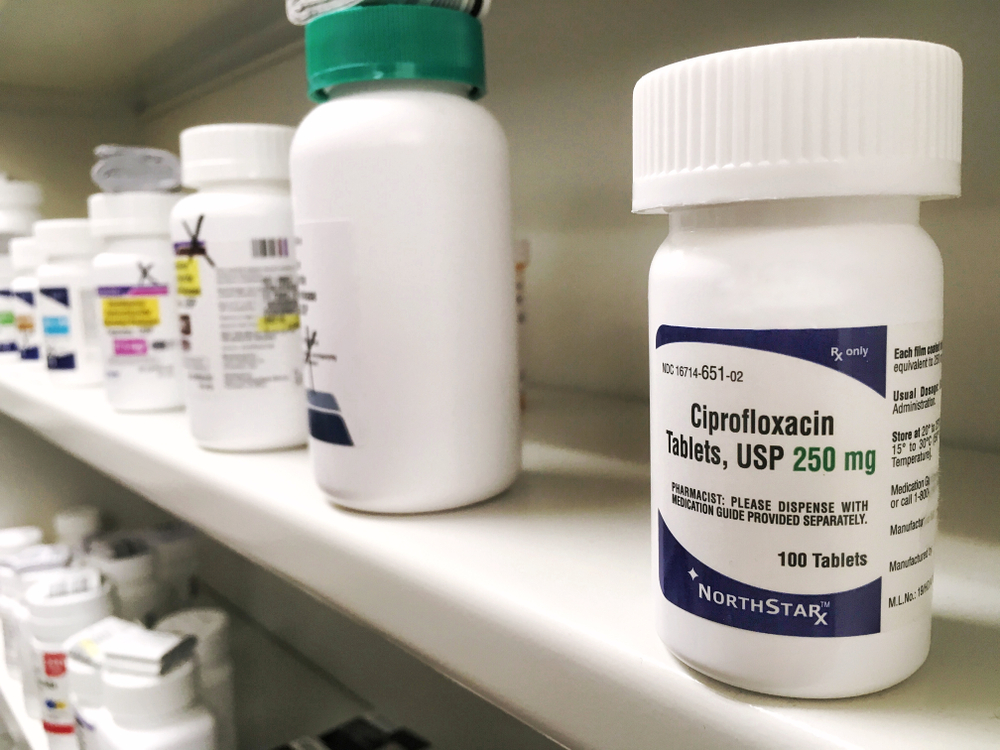Antibiotics are a discovery that has saved countless lives. Since the discovery of penicillin, scientists have discovered and developed thousands more antibiotics for a wide range of bacterial infections. While these developments have had a largely positive impact on our society, it hasn’t been all good news. Amy Moser from Phoenix, Arizona, sadly knows the devastating impact that an antibiotic can have when warnings about certain antibiotics are not heeded. Her doctors prescribed her powerful fluoroquinolones for a simple urinary tract infection, and her life has never been the same since.
Woman’s Life Devastated By Antibiotic Fluoroquinolones

In 2010, Amy Moser went to her doctor with the classic symptoms of a urinary tract infection. As is procedure, her doctor prescribed her a round of antibiotics to get rid of the infection. In this case, her doctor prescribed her an antibiotic called Cipro. This is a part of a group of antibiotics known as fluoroquinolones. These are extremely powerful antibiotics used normally to treat anthrax and highly dangerous bacterial infections. (1)
Two weeks after she finished her treatment, Amy was trying on a swimsuit in a retail store when she dislocated her left kneecap. Soon afterward she began experiencing more problems like this: A dislocated shoulder, three tears to her Achilles tendon, and painful ruptures to the ligaments in her wrists. Since then, she has experienced new tendon tears every few weeks.
These tears and ruptures all have needed surgery to be resolved.

Her doctors were baffled, considering she was an otherwise healthy, young, fit individual. Wanting answers, Amy began searching the FDA’s website for any information. There she found many warnings about the potential risks of fluoroquinolones, including cipro.
“When all the ruptures started to happen, my doctor kept asking me if I’d ever taken Levaquin, and every time I was like, ‘No.’ So I did what all doctors don’t want you to do: I Googled ‘Levaquin,’” she said. “That was the first time I’d ever even heard that word ‘fluoroquinolones,’ and I found Cipro on that list … and I realized that I’d just been prescribed that before everything started,”
Read More: 20 Best Foods To Help Lower Blood Pressure Without Medication
Warnings Issued Too Late

In the 12 years since Amy’s struggles began, the FDA has since issued even more warnings about the use of fluoroquinolones. For Amy, however, these warnings were issued too late. Now in her early 40s, the mom of three has had more than 30 surgeries, including a double knee replacement.
“I am in chronic pain all the time,” she explained. “I am chronically injured. I have a lot of tears that I’ve not fixed because they’re very complicated and I don’t know if the rest of my body can handle the strain of recovering from those surgeries.”
Sadly, Amy is not alone.

Since the 80s, more than 60,000 people have reported serious issues after taking these antibiotics and there have been 6,575 reported deaths. These numbers are also likely not to capture the whole picture, as experts warn that only 1% to 10% of these cases are even reported to the FDA. Despite the warnings and the potential hundreds of thousands of lives that fluoroquinolones have affected, doctors continue to prescribe them for simple infections like those of the sinuses and the urinary tract. Why haven’t they been banned yet? The FDA says that for some patients in specific circumstances, the benefits might outweigh the risks.
“For some patients, the benefits of fluoroquinolones may continue to outweigh the risks for treatment of serious bacterial infections, such as pneumonia or intra-abdominal infections,” said former FDA Commissioner Scott Gottlieb, MD, “but there are other serious, known risks associated with these strong antibiotics that must be carefully weighed when considering their use.”
What Are Fluoroquinolones?

Fluoroquinolones are a class of antibiotics that have been on the market since the 1980s. They are used to treat a range of infections, including urinary tract infections, bronchitis, pneumonia, gonorrhea, and chlamydia.
In addition to these uses, they have also been used to treat anthrax, plague, and some types of meningitis. However, the FDA has issued a safety alert stating that they should not be used for these purposes because they have not been proven safe or effective.
Read More: Doctors Warn Not to Use Ginger If You’re On Any Of These Medications
The risks associated with fluoroquinolones include the following:
- hearing loss
- kidney damage
- central nervous system problems (such as seizures)
- tendon damage
- liver damage
- skin rashes
- joint pain and inflammation
- serious allergic reactions to the drug
In 2022, the FDA released this as part of a statement of warning to medical professionals of prescribing fluoroquinolones:
This latest safety communication reinforces existing guidance from the FDA, which advises against prescribing systemic fluoroquinolones to patients who have other treatment options for bacterial infections, including uncomplicated urinary tract infections, because the risks outweigh the benefits in these patients. Potential risks associated with fluoroquinolone use include hypoglycemic coma and certain adverse mental health effects; disabling and potentially permanent adverse effects to the tendons, muscles, joints, nerves, and central nervous system; peripheral neuropathy; and tendinitis and tendon rupture. (2)
The Bottom Line

Antibiotics are an important part of reactive medicine and have saved millions of lives. They are not all completely risk-free, however. Knowing and understanding the risks and being aware of what you are being prescribed can help you take more control of your health. The next time your doctor prescribes you something, do some research yourself before taking it and ask questions. There is usually more than one solution to a health problem, and if you are really uncomfortable with what you’ve been told to take, voice that concern. If your medical professional refuses to acknowledge or take your concerns seriously, it may be time to seek another opinion.
Read More: 8 Medications That May Cause Hypothyroidism

